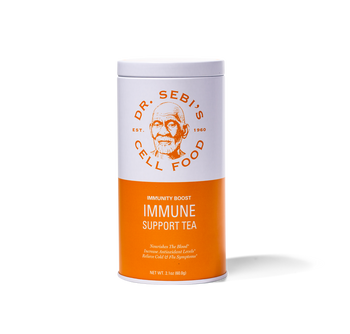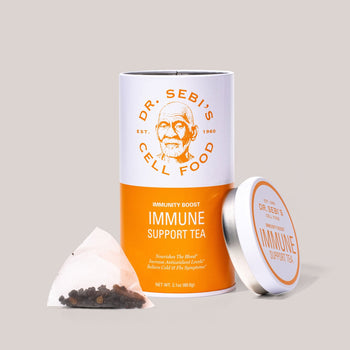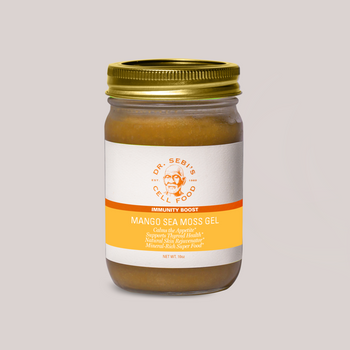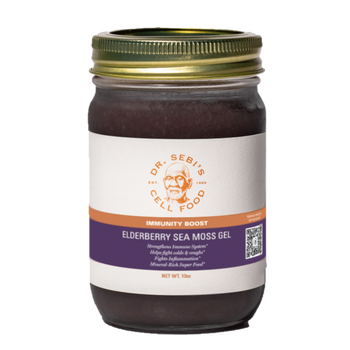In today's fast-paced world, many of us turn to multivitamins as a quick fix to fill nutritional gaps. However, the question remains: do these multivitamins actually work? Surprisingly, the answer is often no. We'll explore why most multivitamins don’t work and delve into what Dr. Sebi did instead to promote health and wellness.
The Multivitamin Myth
The Promise of Multivitamins
Multivitamins are marketed as a convenient way to ensure you’re getting all the essential nutrients your body needs. They promise to boost your immune system, improve your energy levels, and even enhance your overall well-being. However, the reality is that these promises often fall short.
Why Most Multivitamins Don’t Work
1. Synthetic Ingredients: Many multivitamins contain synthetic forms of vitamins and minerals that the body struggles to recognize and absorb. According to a published study, synthetic nutrients are not as bioavailable as their natural counterparts, meaning they are less effective in supporting bodily functions.
2. Nutrient Imbalance: Multivitamins often contain a one-size-fits-all blend of nutrients, which may not align with individual dietary needs. This can lead to an imbalance, where some nutrients are over-supplied while others are under-represented.
3. Lack of Regulation: The supplement industry is not as tightly regulated as pharmaceuticals. A report from the *National Institutes of Health* (NIH) highlights that many multivitamins do not contain the amounts of nutrients listed on their labels, leading to potential inefficacy.
4. Poor Absorption: The form in which vitamins and minerals are presented in multivitamins can affect absorption. Some vitamins are poorly absorbed when taken in pill form, as they've been isolated and lose effectiveness.
The Science Behind Nutrient Absorption
Bioavailability Matters
Bioavailability refers to the extent and rate at which the active ingredients of a supplement are absorbed and utilized by the body. Factors affecting bioavailability include:
-
Form of the Nutrient: Natural vs. synthetic
-
Presence of Other Nutrients: Some nutrients enhance or inhibit the absorption of others
-
Individual Health Conditions: Digestive health can significantly impact nutrient absorption
Whole Foods vs. Supplements
Research consistently shows that nutrients from whole foods are more effectively absorbed than those from supplements. A study found that individuals who consumed a diet rich in fruits, vegetables, and whole grains had better nutrient status than those relying on supplements.
What Dr. Sebi Says About Why Most Multivitamins Don’t Work (And What Dr. Sebi Recommended Instead)
Dr. Sebi’s Holistic Approach
Dr. Sebi advocated for a plant-based diet rich in natural, alkaline foods. He believed that most multivitamins don’t work because they are synthetic and do not align with the body's natural chemistry. Instead, he recommended minerals found in alkaline herbs.
"There is no vitamin in the world that is made by man that complements the human body. Because it does not have the electricity that it should have, just like natural plants have." - Dr. Sebi
Dr. Sebi’s Recommendations
-
Alkaline Diet: Dr. Sebi promoted an alkaline diet, which he believed helped to maintain the body's natural pH balance and supports overall health.
-
Natural Herbs: Instead of synthetic supplements, Dr. Sebi recommended using natural herbs known for their healing properties, such as burdock root, bladderwrack, and sea moss.
-
Whole Foods: Emphasizing the importance of consuming whole, unprocessed foods, Dr. Sebi believed that these provide the body with the necessary nutrients in their most bioavailable form.
How to Choose Effective Supplements
Tips for Selecting Quality Supplements
If you decide to use supplements, consider the following tips to ensure you choose effective ones:
-
Look for Third-Party Testing: Choose supplements that have been tested by independent organizations for quality and purity.
-
Check for Natural Ingredients: Opt for supplements that use natural, whole-food-based ingredients.
-
Consult a Healthcare Professional: Before starting any supplement regimen, discuss it with a healthcare provider to tailor it to your specific needs.
The Role of Diet
Remember, supplements should not replace a balanced diet. Focus on consuming a variety of nutrient-dense foods to meet your nutritional needs naturally.
Conclusion
While multivitamins may seem like an easy solution to nutritional deficiencies, the reality is that most don’t work as effectively as we might hope. Synthetic ingredients, nutrient imbalances, and poor absorption are just a few reasons why these supplements often fall short. Dr. Sebi’s approach, emphasizing natural, whole foods and herbs, offers an alternative perspective on achieving optimal health. However, it is crucial to approach any health regimen with a critical eye and consult with healthcare professionals to ensure it aligns with your individual needs. Ultimately, the best path to wellness is a balanced diet rich in natural, whole foods, complemented by informed supplement choices when necessary.








 Liquid error (snippets/card-product line 54): invalid url input
Liquid error (snippets/card-product line 54): invalid url input




















































